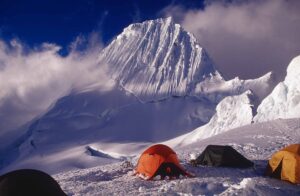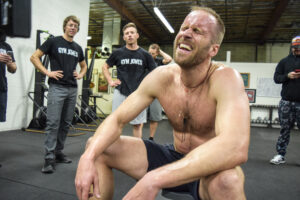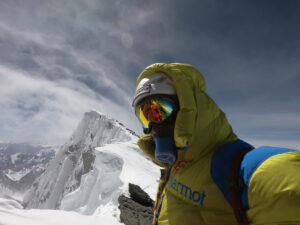In the world of endurance sports, be it marathon running, cycling, or long-distance swimming, the importance of proper fueling and hydration cannot be overstated. As we push our bodies to the limit, the need for energy and water becomes critical to maintain performance, prevent injuries, and ensure overall health.
By Fredrik Sträng
Blood Sugar Drop
I remember it like if it was yesterday. A team of eleven orienteering aficionados lit up the wintry forest with our headlamps in search for the next control in the outskirts of Mora in Dalarna. I was leading, ploughing in knee-deep fresh snow and I was about to climb over an unassuming little knob when suddenly the air went out. I slowed down as if someone pulled out the electrical cord and my machine stopped. Fatigue, intense breathing and a bizarre feeling rushed through my body. I simply could not continue!
Hasse Develius, who was right behind came up and knew instantly that I’d fallen victim for Hypoglycemia aka blood sugar drop. The rest of the team continued while I with the support of Hasse made a shortcut through the woods back into the neighbourhoods where he knocked at the closest villa. The strangers opened and Hasse asked for sugar and a glass of juice. I can tell you, when I put the bits of sugar in my mouth and swallowed it with the juice, man, the body kicked back to life, a feeling that is indescribable!
Later, that evening Hasse asked me about my diet and eating protocol. It was clear then that I hardly supplied my body with enough energy to support the exercise. You have to “feed the machine” became my motto.
The Science of Fueling
During prolonged exercise, our muscles rely on glycogen stores for energy. These stores, however, are finite and can deplete quickly, leading to fatigue and diminished performance. This is where the concept of “fueling” comes into play. Consuming carbohydrates before and during exercise replenishes glycogen levels, providing a steady source of energy to power through the workout.
Simple carbohydrates, like those found in energy gels, sports drinks, and easily digestible snacks, are particularly effective as they are quickly absorbed and utilized by the body. This continuous supply of fuel helps maintain blood glucose levels, delaying the onset of fatigue and allowing athletes to perform at their peak for longer durations.
I normally eat energy bars and gels during prolonged exercise. They are easy to bring, takes little time to eat and are affordable. If I climb for let’s say 8 hours or more, I normally eat a meal that can consist of rice noodles (I put them in a Nalgene bottle and add boiling water. By the time its time for lunch it is already prepared).
Hydration: The Lifeline of Performance
Equally important is hydration. Water makes up about 60% of our body weight and plays a crucial role in regulating body temperature, lubricating joints, and transporting nutrients. During exercise, especially in hot and humid conditions, we lose water through sweat. This loss needs to be compensated to prevent dehydration.
Even a small percentage of body weight loss due to dehydration can lead to significant declines in performance. Symptoms like dizziness, muscle cramps, and heat exhaustion can set in, making it essential to drink fluids at regular intervals. Sports drinks, which contain electrolytes like sodium and potassium, are particularly beneficial as they help replenish the salts lost through sweat and maintain fluid balance.
There is no doubt that plentiful of water helps acclimatizing to altitude in climbing and keeps you sharp and alert. However, it is also heavy to carry 3-4 litres of water during the daily climbs why I often take a break halfway to melt snow to make up for the water I need. Thus, I seldom need to carry more than 1.5 maximum 2l of water in my backpack.
Striking the Balance
The key to effective fueling and hydration lies in balance. Consuming too much or too little of either can lead to gastrointestinal distress or dehydration. It’s recommended to practice your nutrition and hydration strategy during training sessions to find what works best for your body.
For most athletes, starting with 30-60 grams of carbohydrates per hour of exercise and 400-800 ml of water per hour is a good baseline. Adjustments can be made based on individual sweat rates, the intensity of the exercise, and environmental conditions.
Conclusion
In conclusion, understanding and implementing proper fueling and hydration strategies is essential for anyone engaged in prolonged physical activity. It not only enhances performance but also safeguards against potential health risks associated with intense exercise. By prioritizing these aspects, athletes can push their limits safely and effectively, unlocking their true potential.
Stay fueled, stay hydrated, and keep moving forward.
#zinzino #zinzino_partner #nutrition #hydration #fuel
About Fredrik Sträng: Fredrik, in his leadership role, has climbed seven of the Earth’s fourteen 8,000m peaks, set a Guinness World Record, and lectures on leadership, communication, decision-making, and crisis management.
Best regards, Fredrik Sträng Alpinist – Speaker – Coach







